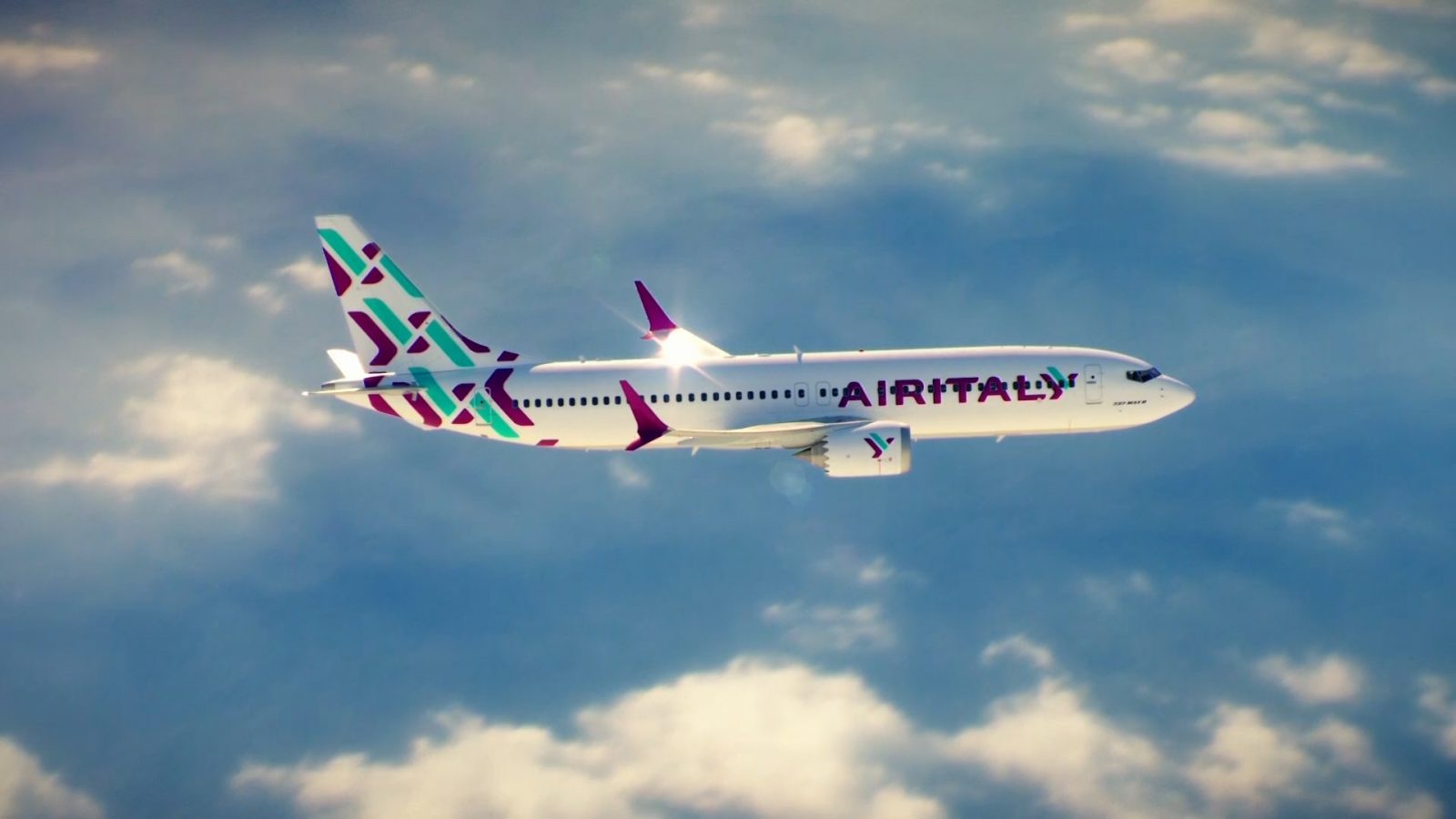
Air Italy has quickly established itself as the most controversial airline in Europe, reigniting a fierce debate over the role of government subsidies and what some claim is unfair competition on North American routes. That’s because Air Italy has managed to rebrand and quickly expand after Qatar Airways took a 49% stake in the carrier’s parent company last year. Along with a capital injection funded by Qatar and a management team sent from Doha, it’s easy to see Air Italy as a vessel for Qatar Airway’s expansion into both Europe and North America.
At least, that’s what critics including Ed Bastain the chief executive of Delta Air Lines believe. In a scathing opinion piece written by the airline leader last month, Bastain said the “close to defunct” Air Italy was being used to skirt a promise made by Qatar Airways not to add fifth freedom flights to the United States (where a foreign airline operates a direct flight outside of its home market to a third country).
Since its rebranding exercise early last year, Air Italy has launched flights to New York JFK and Miami, as well as announcing plans to fly direct between Milan and San Francisco, Chicago and Los Angeles. Air Italy also intends to open a route between its hub in Milan and Toronto, while to the East the carrier connects to Dehli and Mumbai.
Interestingly, recent changes to the airline’s schedules seem to suggest Air Italy really is targeting the Indian diaspora – a business strategy that has long been employed by Qatar Airways. A couple of days ago, Air Italy announced plans to suspend its Bangkok service – no doubt a popular route for Italian holidaymakers but one suspects Air Italy is now targeting connecting traffic through to North America.
But even without Bangkok, all these new routes are only possible because Qatar Airways has ‘loaned’ five Airbus A330 widebody aircraft and a number of brand new Boeing 737 single-aisle planes to replace Air Italy’s otherwise ageing aircraft fleet – all of which have been registered in Ireland.
The deal is a win-win for Qatar Airways – the airline had a surplus of aircraft after the Saudi-led blockade forced Qatar to cut capacity, while Air Italy can use the otherwise idle aircraft to fuel its growth.
But has Qatar Airways deliberately loaned more aircraft than Air Italy actually needs? That then allows Air Italy to wetlease the aircraft to other airlines who need additional temporary capacity. Wet leasing isn’t unusual – the process, whereby an airline hires both the aircraft, crew and maintenance services, is used frequently and Europe already has a number of airlines that specialise in this area.
One of the most well-known is HiFly who made headlines last year for buying the first second-hand A380 off Singapore Airlines. Spanish airline, Wamos has also been involved in a number of infamous wet lease operations in the last 12-months, while British Airways has been making use of Air Belgium to cover for its Boeing 787 troubles.
Under EU rules, which were only recently toughened, European airlines can only enter wet lease agreements with foreign airlines based outside the EU if there are exceptional circumstances like a complete lack of wetlease aircraft available within Europe.
Having said that, Qatar Airways has managed to wetlease its aircraft to British Airways on two occasions despite criticism and even calls for an injunction to stop it from happening – although authorities allowed the wetlease to go ahead in part because Qatar Airways owns a significant stake in the part company of BA.
But transferring its aircraft to Air Italy certainly opens up a new wetlease market for Qatar Airways. There have already been two such agreements – one in October for a period of three weeks with Finnair, while LOT Polish Airlines is also in the middle of a three-week wetlease agreement. Both of which were for one of the Qatar Airways Airbus A330 aircraft that have been loaned to Air Italy.
There’s nothing illegal in what Qatar Airways or Air Italy is doing – in fact, aircraft are relatively frequently moved between airlines in the same group depending on demand and market conditions. It could actually be seen as a very clever way to make use of aircraft and make the best of a bad situation.
We reached out to Air Italy for comment but a spokesperson was unavailable. Pressure groups who have spoken out against Qatar’s involvement in Air Italy have not yet publicly commented on the airline’s wet lease practices.
Related
Mateusz Maszczynski honed his skills as an international flight attendant at the most prominent airline in the Middle East and has been flying ever since... most recently for a well known European airline. Matt is passionate about the aviation industry and has become an expert in passenger experience and human-centric stories. Always keeping an ear close to the ground, Matt's industry insights, analysis and news coverage is frequently relied upon by some of the biggest names in journalism.







